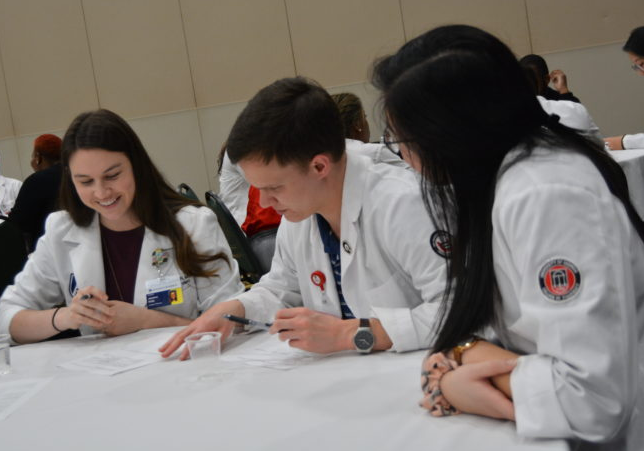Deadly popcorn, instant radiation treatment, Georgia’s a good place for pharmacists, and more
11 Jan 2020
Posted by Andrew Kantor
Tomorrow it is!
January 12 is National Pharmacist Day in the U.S.A.! This year, let’s try to tone the partying down a bit, shall we? We don’t need a repeat of you-know-what.
But seriously, have fun and remember to tell your friends and enemies, “Be nice to me. Today is my day.”
Fun facts:
- World Pharmacists Day is September 25
- Pharmacy Technician Day is October 15
- National Pharmacy Week is the third week of October
- American Pharmacists Month is October
Got all that?
Not a bad place to be
Where’s it good to be a pharmacist? Georgia ranks in the middle — #20 out of the 50 states. That’s based on ratings from 24/7 Wall Street, which scored the states on seven measures of quality of life and quality of job (e.g., cost of living, number of pharmacy burglaries, average salary, etc.).
Weak spots: “Total burglaries and armed robberies of pharmacies” and the total number of pharmacists.
Strong spot: Cost of living.
UGA practices teamwork
Student pharmacists from UGA worked with student nurses, student social workers, and med students as part of UGA’s Interprofessional Education Day. “to better understand the roles their counterparts play in caring for patients and to discover how they can work together as a team.”
They took on the fictional case of a man with high blood sugar:
Offering perspectives from their professions, the students worked to optimize the patient’s care as he was admitted to a hospital, assessed, treated, then returned to his family and community.

Oldies but goodies
Take the 25 most expensive drugs, i.e., the ones Medicare spent the most on. (This is what Harvard researchers did.)
Count their active ingredients: There are 27 total.
See how long those ingredients have been around.
What they found: 41% of those active ingredients aren’t even close to new — they’re an average of more than 21 years old (as of 2019).
“Many active ingredients in the 25 brand-name drugs with the highest Medicare spending were discovered decades ago, with a substantial minority having been previously marketed in alternative formulations or products.”
So why the high price tags? Lack of generic competition, patents, and molecular tweaks.
Infection surprise
The immune system produces the antibacterial molecules to fight infection, right? Not always, it seems. When it comes to the gut, it’s nerve cells that unleash the army of cytokines.
The foot soldiers in the war against intestinal pathogens, it turns out, are the immune system molecules interleukin-18 or IL-18. Interleukins are part of the immune system’s arsenal.
Small events, big results
One-second radiation treatment
Using electrons for radiation treatment is so 2019. Penn researchers have shown that when using protons instead — in a technique called FLASH radiotherapy — a single high dose (taking less than a second) is equivalent to a patient having several weeks’ worth of treatment.
One broken gene
A single mutation in a single gene can make prostate tumors a lot more aggressive, and fixing that gene (or reconstituting the protein it encodes) “ultimately kills prostate cancer cells.” So finds a new study out of Temple University, which could — obviously — lead to new treatments for the deadlier kinds of prostate cancer.
One piece of popcorn
A single piece of popcorn stuck in a British man’s teeth eventually led to his needing open-heart surgery. (Mouth bacteria got into his bloodstream and caused endocarditis.)
One dollar for mental health
Suicide is a huge problem in this country (in the top 10 causes of death). But here’s an interesting find: For people without a college education, a one dollar increase in the minimum wage seems to lead to a noticeable drop in suicides — we’re talking “a 3.5 to 6 percent reduction in the suicide rate for every dollar increase in the minimum wage.”
Elsewhere
California is considering a plan to produce its own brand of generic drugs — at a lower cost — to compete with pharmaceutical companies.
Well, sort of. The plan is better described as “California would pay companies to make certain generic drugs at lower cost.” But that doesn’t sound as interesting.
Kansas is poised to become the 37th state to expand Medicaid. The proposal, which is likely to pass, would cover families of three earning up to $29,435 a year.


